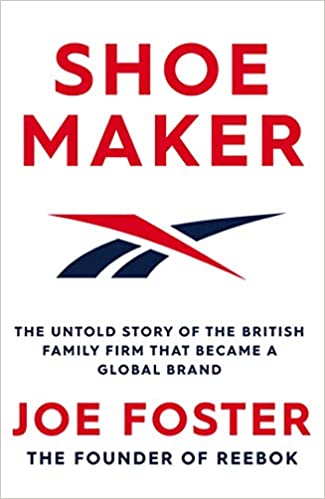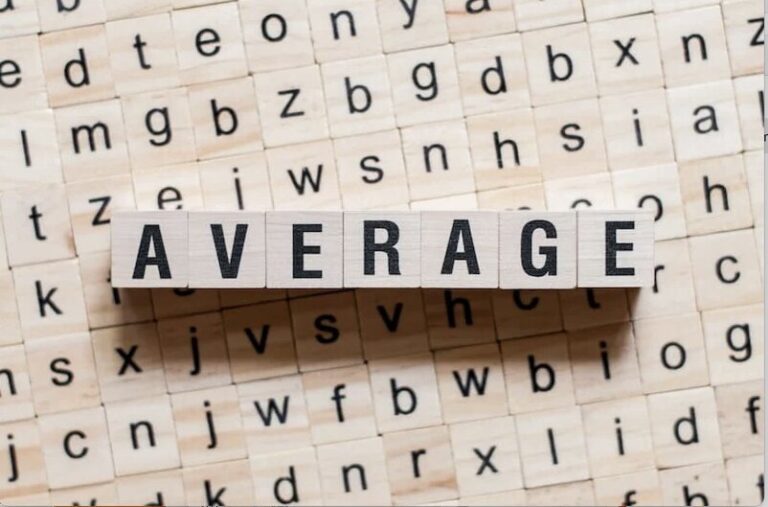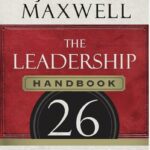The word “average” comes from the Old French word “avarie” which means “damage to ship or cargo,” and is derived from the Arabic word “awar” which means “damaged merchandise.” In the Middle Ages, “avarie” came to refer to the distribution of the cost of such damage among the ship’s owners and cargo owners. By the 16th century, “average” had taken on the meaning of a division of a loss or expense among several parties. Today, “average” is used to describe a number or quantity that represents a typical or ordinary value within a larger group or population.
“Mediocrity is a region bound on the north by compromise, on the south by indecision, on the east by past thinking, and on the west by a lack of vision.”

In his book, An Enemy Called Average, author John Mason made the following observation about Average:
- Each of us has been given a certain mixture of abilities and opportunities that make us unique. No mixture is insignificant. Those matchless qualities that God has placed within all of us cause us to yearn to be above average and extraordinary.
- Stay far away from negative-thinking “experts.” Remember: in the eyes of average people, average is always considered outstanding. Look carefully at the closest associations in your life; they indicate the direction you’re heading.
- Nobody can ever make you feel average without your permission. Ingratitude and criticism are going to come as part of the price you’ll pay for leaping past mediocrity.
- Choose to be a person who is on the offensive, not the defensive. Never try to defend your present position and situation. People who live defensively never rise above average. Decide to be on the offensive, to take the initiative. Lukewarm, indecisive people are never secure regardless of their wealth, education, or position.
In his poem titled Average 1, Edmund-Gaudet made the following observations about average:
- “Average” is what the failures claim to be when their family and friends ask them why they are not more successful.
- “Average” is the top of the bottom, the best of the worst, the bottom of the top, the worst of the best. Which of these are you?
- “Average” means being run-of-the-mill, mediocre, insignificant, an also-ran, a nonentity.
- Being “average” is the lazy person’s cop-out; it’s lacking the guts to take a stand in life; it’s living by default.
- Being “average” is to take up space for no purpose; to take the trip through life, but never to pay the fare; to return no interest for God’s investment in you.”
- “Being “average” is to pass one’s life away with time, rather than to pass one’s time away with life; it’s to kill time, rather than to work it to death.
- To be “average” is to be forgotten once you pass from this life. The successful are remembered for their contributions; the failures are remembered because they tried; but the “average,” the silent majority, is just forgotten.
- To be “average” is to commit the greatest crime one can against one’s self, humanity, and one’s God. The saddest epitaph is this: “Here lies Mr. and Ms. Average—here lies the remains of what might have been, except for their belief that they were only “average.”
Being average is a form of social conditioning and programming instilled in most of us from childhood. Our parents and caregivers indoctrinate us with their fears and insecurities, such as ‘don’t rock the boat’, ‘be careful,’ and ‘stay safe,’ and most of us don’t get the gift of self-awareness required to reprogramme our thinking. As Henry David Thoreau observed in Civil Disobedience and Other Essays, we live our lives in a trance, leading a life of quiet desperation.
“The mass of men lead lives of quiet desperation. What is called resignation is confirmed desperation. From the desperate city you go into the desperate country, and have to console yourself with the bravery of minks and muskrats. A stereotyped but unconscious despair is concealed even under what are called the games and amusements of mankind. There is no play in them, for this comes after work. But it is a characteristic of wisdom not to do desperate things..”

In his book about the founding of the American fitness footwear and clothing brand Reebook, The Untold Story of the British Family Firm that Became a Global Brand 2, Co-Founder of Reebok Joe Foster described how must of us get indoctrinated into becoming average from a very young age. He remarked:
I was brought up in a world of the remarkably average, where aspiring to be better was frowned upon. It was an era of ‘know your place’, ‘don’t rock the boat’, and other edicts injected into the masses to keep society in order. And it was also a time when old-fashioned values were in place, when people were generally kind to their neighbours, their elders and even to their peers.
Decency was paramount, my mum had always instilled that in me, alongside respect for others. But in my mind, contrary to societal expectations, so was growth and Improvement through challenging myself, and it was on these foundations that my (eventual) success in industry was founded. The path to that success wasn’t straight, nor was it defined. A lot of it was based on decisions that were made on the hoof. Many of those decisions were reactive rather than proactive, but always with the same aim in mind: to sell more shoes than the day before.
I was brought up in a world of the remarkably average, where aspiring to be better was frowned upon.
Making Bad Choices is the lifeblood of average 3
Deep down, we all know our choices ultimately determine our behaviors and those behaviors ultimately determine our outcomes. That doesn’t make choosing correctly any easier in our own lives. Making bad choices is the lifeblood of average. It feeds it. It consumes it. It protects it.
Being average means you are as close to the bottom as you are to the top. – Coach John Wooden
Average Work
Average is how most of us live our lives as we go to a job we don’t like, try to impress people that don’t care about us, and we don’t make waves because we are afraid of rocking the boat. American author and professor John Augustus Shedd once said, “A ship in harbour is safe, but that is not what ships are built for.” We live most of our existence on average as we become civilized and responsible, rest on our laurels, and retire from living a passionate life, all in the name of civility. We spend a large chunk of our lifetime at work, which is one of the avenues for becoming average and mediocre.
According to the Gallup World Poll, the average full-time worker spends 41.36 hours per week working. If you assume people work 48 weeks per year, it means people spend 1,985.28 hours per year working. Life expectancy is 73 and, according to the OECD, people retire at about 63. If people begin working at 22, then the average person works 41 years. Forty-one years of work at 1,985.28 hours per year is 81,396 total hours. This estimate is conservative and may even be low; another estimate finds that people work over 115,000 hours in a lifetime.
According to Business Insider, the average person spends about 90,000 hours of their life working. To put it into perspective, that is about 3,750 days out of your 30,000 days to live. That’s roughly 10 percent of your life dedicated to what you do to earn a living.
“Work spares us from three evils: boredom, vice, and need” – Voltaire
According to a 2018 study conducted by the University of Southern California, the average American spends 24 hours a week online. That means that scrolling, searching, and swiping our way through the internet takes the same amount of time as a part-time job. 4
The average man does not know what to do with his life, yet wants another one which will last forever. -—ANATOLE FRANCE
Meditation
- Daily Calm with Tamara Levitt -Edge
- Meditation does not fundamentally change who we are; if we are hardworking and ambitious, we would continue to be. Instead what would change is the way we work and our relationship with our goals and ambitions. As our mindfulness practice builds, we develop new skills and capacities. We cultivate the skill of concentration, so we can focus more intently and increase productivity. We learn how to slip into a state of flow, so we can access different sources of creativity, we become more calm and clear-headed, so we can prioritize more effectively. We learn to let go of our fixation and end result that we relax into our goals, take risk with greater ease and enjoy the process.
Be still like a mountain and flow like a great river. -Lao Tzu
- Daily Jay with Jay Shetty – Sustenance
All the Best in your quest to get Better. Don’t Settle: Live with Passion.



Comments are closed.